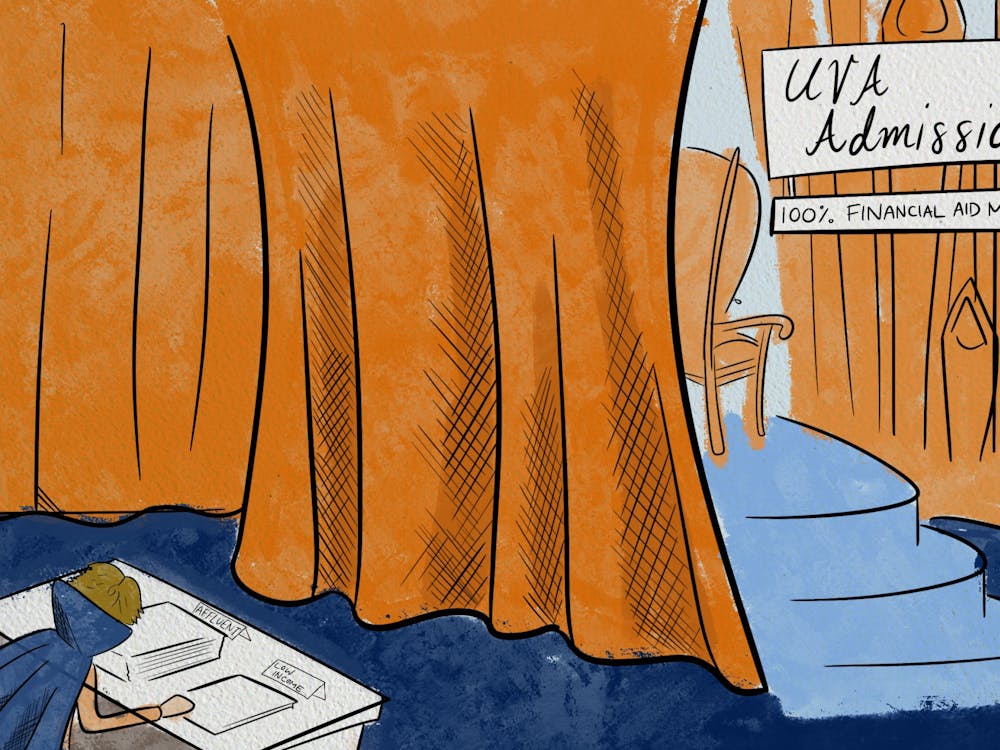We are all familiar with Martin Luther King Jr.’s status as a national hero. With a federal holiday commemorating his birthday and celebrations each year praising his vision, King is as much a secular saint as any in our nation’s history. For many, he is inseparable from his 1963 “I Have a Dream” speech, in which he dramatically calls for an end to racism in the United States. Simple and unthreatening, the phrase “I have a dream” has come to represent King’s thoroughly uncontroversial public legacy: the inspirational African American who peacefully led the charge against the evils of racism.
This month, the University will hold its third annual Martin Luther King Jr. celebration. Best-selling author, scholar and cultural critic Michael Eric Dyson will give a keynote address entitled “Dr. King in the 21st Century.” Dyson is the author of the 2000 book “I May Not Get There Without You: The True Martin Luther King, Jr.,” which discusses King’s radical views on economic policy. The title of this year’s address suggests we can expect a more controversial (and politically relevant) discussion of MLK’s legacy — and this perspective stands in sharp contrast to the public’s simplified and sanitized King.
The MLK who famously spoke to 250,000 people on the steps of the Lincoln Memorial also held strong convictions about American economic policy. Out of his concern for racial injustice grew a preoccupation with the roots of poverty and unemployment. An unsparing critic of the Vietnam War and American capitalism, King saw a need for a “radical redistribution of economic power.” He advocated a number of progressive and socialist causes, including a guaranteed income and universal health care. We cannot forget that the full name of MLK’s famous 1963 March on Washington was the March on Washington for Jobs and Freedom.
King’s opinions prompted William Sullivan, head of the FBI’s domestic intelligence division in 1963, to name him “the most dangerous Negro in the future of this Nation from the standpoint of communism” (for the record, King advocated a “higher synthesis” that “combines the truths of both” capitalism and communism). In the months before his 1968 assassination, King shifted his focus to decidedly democratic socialist causes, organizing a massive Poor People’s Campaign to pressure the government into economic reforms beyond those of Johnson’s War on Poverty.
Dyson points out that MLK’s current public image is misleading and inaccurate. “In the last thirty years we have trapped King in romantic images or frozen his legacy in worship,” he writes. With King’s intellectual and moral brilliance so widely recognized, Americans should critique and apply his thought — economic as well as racial — even if it takes us to uncomfortable conclusions. Instead, we hold him up as a (often self-congratulatory) reminder of how much we’ve improved.
By rejoining these two Martin Luther King Jr.’s — the integrationist of 1963 and the radical democratic socialist of 1968 — we challenge ourselves to recognize the extent that our national hero’s famous “dream” remains unfulfilled. Adopting the “real” legacy of MLK forces us to make connections that he saw 50 years ago. King, as usual, says it best: “questioning the whole society … means ultimately coming to see the problems of racism, the problem of economic exploitation, and the problem of war are all tied together. These are triple evils that are interrelated.”
Perhaps most representative of King’s convictions on the interrelatedness of racial and economic injustice is his Southern Christian Leadership Conference’s demand for an “economic and social bill of rights” which includes rights for a job, a decent house and an adequate education. The letter proclaims that “[i]t cannot take two more centuries for it to occur to this country that there is no real right to life, liberty and the pursuit of happiness for people condemned by the accident of their birth to an existence of hereditary economic and social misery.”
Unfortunately, to adopt a realistic view of Martin Luther King Jr.’s political philosophy would likely demote him from sainthood in many Americans’ eyes. But it’s safe to say that King would prefer that. If Dyson’s prior work is any indication of his keynote address this Thursday, he will attempt to convey a more complex, politically relevant MLK. But if King’s radical legacy is to affect political influence, it must spread beyond the academic sphere.
George Knaysi is an Opinion columnist for The Cavalier Daily. His columns run Tuesdays.




